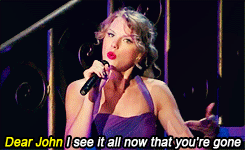With a sharp tongue, willingness to defy gender roles, and a spark of scandal, a “New Woman” has entered Victorian literature. Christina Rossetti explores this New Woman and her connection to gender and sexuality through her poem, “‘No, Thank You, John’.”
The poem begins with, “I never said I loved you John,” (Rossetti, 1) a blunt declaration that immediately strays away from the definition of an ideal Victorian woman. Rather than being submissive, our speaker becomes authoritative and directly attacks a man with whose views she doesn’t agree with. In the next line, she mentions that John has “tease[d] [her] day by day” (Rossetti, 2). This statement juxtaposes tradition gender roles and takes a stab at masculinity. Normally, it is presumed that women are the ones teasing and taunting men. This theme is seen in our previous poem, “My Last Duchess” by Robert Browning, where the Duke’s wife, “thanked men—good!” (Browning, 31) which became the main source of the female downfall. Yet, through the words of Rossetti’s strong, confident, female speaker, we learn that the tables have turned. Therefore, the topic of sexuality is challenged considering the man is now the person pining over his lover, rather than the other way around. This is important for this era because typically females don’t have much power in their marriage or relationships. Browning’s work revealed that women often become the property of their male counterpart once he gives them a “nine-hundred-years-old-name” (Browning, 33) they can’t refuse.
However, we see a completely different version of women through Rossetti’s poem. In fact, any masculine authority is taken away all together. The only time we hear John’s thoughts are when the speaker is recalling them to the reader. “I have no heart?” (Rossetti, 13) she mentions, bringing up a statement John previously used to undermine her with. By hearing his words coming from her mouth, she completely takes control of the situation, taking his former accusation and making him the victim of the attack instead. Later that stanza, she tells him to “use [his] own common sense” (Rossetti, 16). Here, she commands him and refers to him in a child-like manner. Rather than the male and female being equals, she speaks lower of him as if she is on an elevated plain.
The idea of sexuality is perhaps seen best in the endings line, “Here’s friendship for you if you like; but love, –No, thank you John” (Rossetti, 31-32). The speaker asserts that a woman doesn’t have to love a man even though he’s interested in her, she has control over whether or not see wants to love him as well. The ideas of the New Woman ring true through Rossetti’s poem and prove that women are progressing and taking a stand for  what they believe.
what they believe.